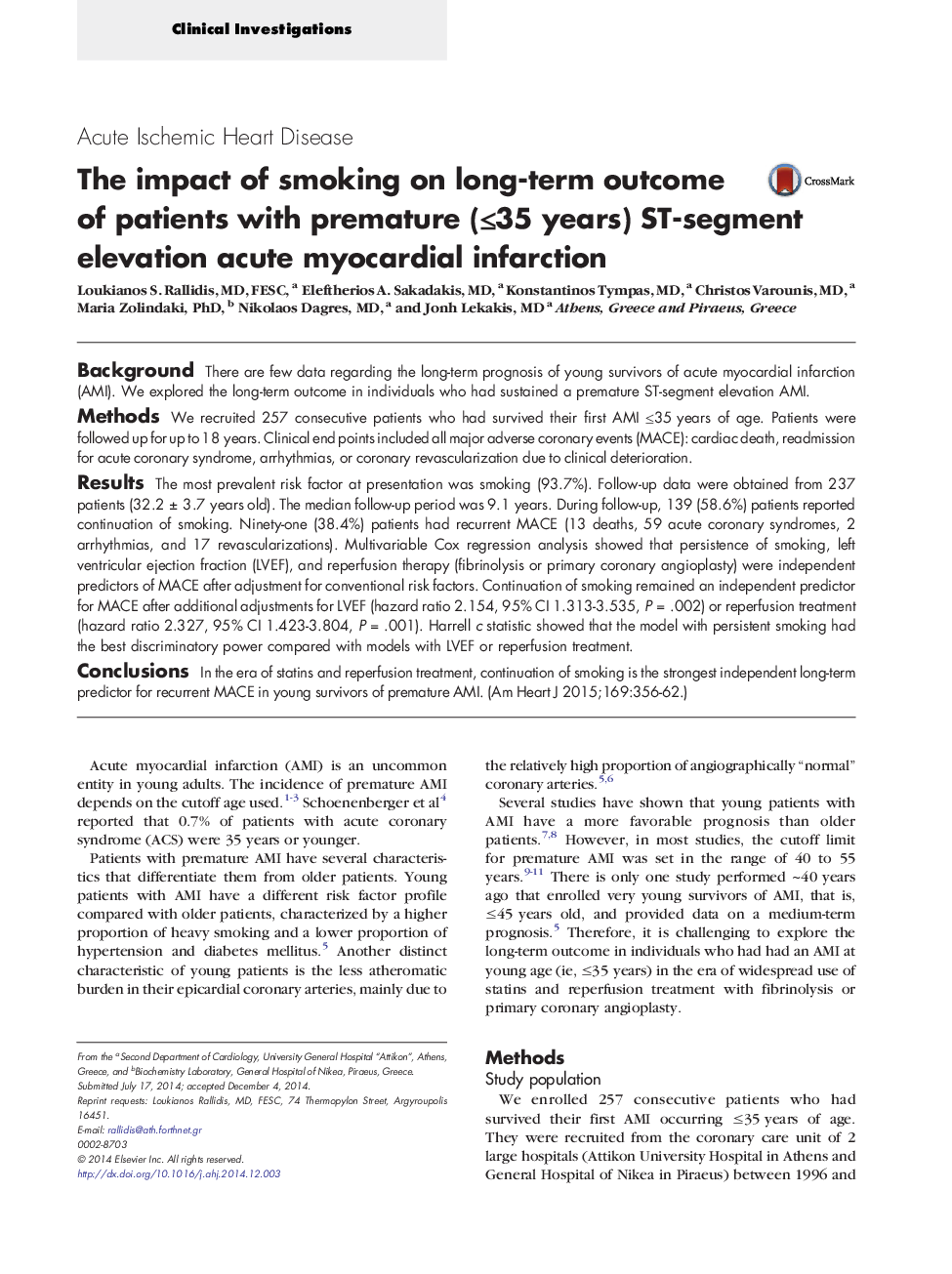| کد مقاله | کد نشریه | سال انتشار | مقاله انگلیسی | نسخه تمام متن |
|---|---|---|---|---|
| 2849900 | 1167732 | 2015 | 7 صفحه PDF | دانلود رایگان |
BackgroundThere are few data regarding the long-term prognosis of young survivors of acute myocardial infarction (AMI). We explored the long-term outcome in individuals who had sustained a premature ST-segment elevation AMI.MethodsWe recruited 257 consecutive patients who had survived their first AMI ≤35 years of age. Patients were followed up for up to 18 years. Clinical end points included all major adverse coronary events (MACE): cardiac death, readmission for acute coronary syndrome, arrhythmias, or coronary revascularization due to clinical deterioration.ResultsThe most prevalent risk factor at presentation was smoking (93.7%). Follow-up data were obtained from 237 patients (32.2 ± 3.7 years old). The median follow-up period was 9.1 years. During follow-up, 139 (58.6%) patients reported continuation of smoking. Ninety-one (38.4%) patients had recurrent MACE (13 deaths, 59 acute coronary syndromes, 2 arrhythmias, and 17 revascularizations). Multivariable Cox regression analysis showed that persistence of smoking, left ventricular ejection fraction (LVEF), and reperfusion therapy (fibrinolysis or primary coronary angioplasty) were independent predictors of MACE after adjustment for conventional risk factors. Continuation of smoking remained an independent predictor for MACE after additional adjustments for LVEF (hazard ratio 2.154, 95% CI 1.313-3.535, P = .002) or reperfusion treatment (hazard ratio 2.327, 95% CI 1.423-3.804, P = .001). Harrell c statistic showed that the model with persistent smoking had the best discriminatory power compared with models with LVEF or reperfusion treatment.ConclusionsIn the era of statins and reperfusion treatment, continuation of smoking is the strongest independent long-term predictor for recurrent MACE in young survivors of premature AMI.
Journal: American Heart Journal - Volume 169, Issue 3, March 2015, Pages 356–362
